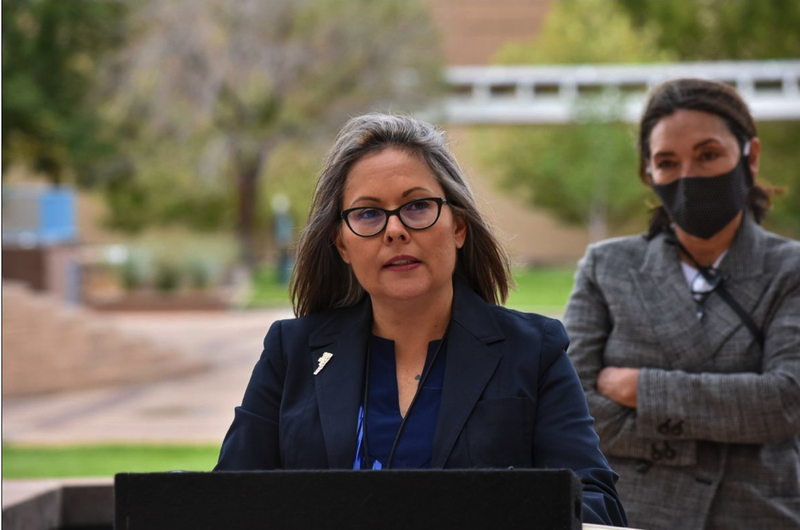
City Council Votes Unanimously to Strengthen and Re-Affirm the City’s Commitment to Racial Equity and Social Justice
Councilors Peña, Borrego, and Sena co-sponsored R-20-75
September 11, 2020
ALBUQUERQUE, N.M. — City Councilors Klarissa Peña, Cynthia Borrego, and Lan Sena, themselves representing diversity as councilwomen of color, co-sponsored R-20-75, which strengthens and re-affirms the City’s commitment to addressing racial equity and social justice and establishes a foundation for improving equity in City policy, processes, programs, and service delivery at the departmental level with support and direction from the City of Albuquerque’s Office of Equity and Inclusion (OEI). The City Council unanimously passed the resolution at Wednesday's council meeting.
This resolution calls for equity training for all City of Albuquerque Department Directors, and for departments to conduct racial equity impact assessments. OEI is directed to identify indicators related to equity and inclusion to be included in the City’s five-year goals, to be guided by four key principles: committing and embedding equity, ensuring equity in resource allocation, ensuring equity in public messaging, and transparent use of data in decision-making. The Office of Equity and Inclusion would also be required to make annual reports to the Mayor and Council.
“Our Office is grateful to have a Mayor and City Council who value equity and who understand that it takes disaggregated data and intentional action to make change,” said Michelle Melendez, inaugural director of the Office of Equity and Inclusion established by Mayor Tim Keller in 2018. “We are working to improve our community’s outcomes so that race is no longer a predictor of one’s health, wealth and wellbeing.”
R-75 includes provisions describing how race and social equity need to be considered in the City’s planning, decision-making, and budgeting processes. Race and social equity should additionally be considered in addressing disparities and policy areas related to health, mental health, housing, minority business, municipal employment, immigrant and refugee integration and youth development.
“We define inequities as disparities in health, mental health, economic indicators, housing, education, or social factors that are systemic and unjust,” said Councilor Peña. “And we acknowledge that structural and institutional racism have led to racially disparate outcomes in many aspects of quality of life. This legislation is a great step in righting those inequities.”
The City is directed by the resolution to support the start-up and growth of businesses owned by people of color and women. The bill also directs workforce development support for youth and workers of color.
Councilor Sena continued, “We are a majority-minority City with 59% of our residents being people of color. Because the City benefits from the diversity of its population, we want to incorporate the expertise of those most negatively impacted by inequity in the identification and implementation of policies, programs, and budget processes and decisions.”
To address implementation, R-75 requires the City to complete a data collection plan, excluding APD to avoid conflicts with existing court-ordered requirements, and for departments to conduct racial impact assessments. Departments are also directed to designate an equity liaison to OEI and to include an equity note as part of their annual report to City Council for internal review during the budget approval process.
“Quoting the great American poetess Maya Angelo ‘I can be changed by what happens to me, but I refuse to be reduced by it’,” Councilor Borrego remarked. “Change is the only way we as a society grow and make the world a better place for us, and our children--all of our children, no matter their color.”
Read the full text of the bill here.
